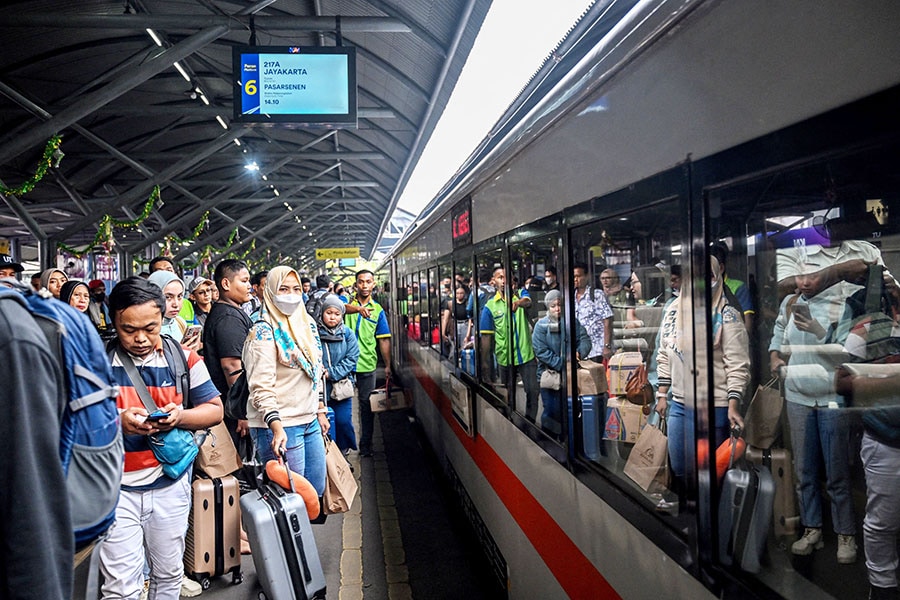
Millions of Indonesians take part in exodus for Eid celebration
This is the second exodus since the Covid-19 outbreak, and the enthusiasm for mudik has revitalised Indonesia's battered transportation industry, which came to a standstill during the worst days of the pandemic
 Indonesia's transport ministry says up to 193 million people were expected to travel for Eid this year, up from 123 million estimated to have made the trip last year in the world's most populous Muslim-majority country.
Image: Yasuyoshi Chiba / AFP©
Indonesia's transport ministry says up to 193 million people were expected to travel for Eid this year, up from 123 million estimated to have made the trip last year in the world's most populous Muslim-majority country.
Image: Yasuyoshi Chiba / AFP©
On motorcycles, cars, buses, planes or by boat, millions of Indonesians have travelled to their hometowns in an annual exodus for the Eid holiday that begins in the country on Wednesday.
Major seaports and toll roads have been packed in recent days, while airports and bus terminals were also full of travellers looking forward to reuniting with their families.
The annual migration known as "mudik", or exodus, takes a toll on Indonesia's roads. Travellers who pack their families and luggage into cars or motorbikes can face gruelling trips of 24 hours or longer.
Indonesia's transport ministry says up to 193 million people were expected to travel for Eid this year, up from 123 million estimated to have made the trip last year in the world's most populous Muslim-majority country.
More than 28 million were forecast to have left the Greater Jakarta area alone, enduring hours of traffic or congested airports and seaports to celebrate the end of the Muslim holy month of Ramadan with their families.







